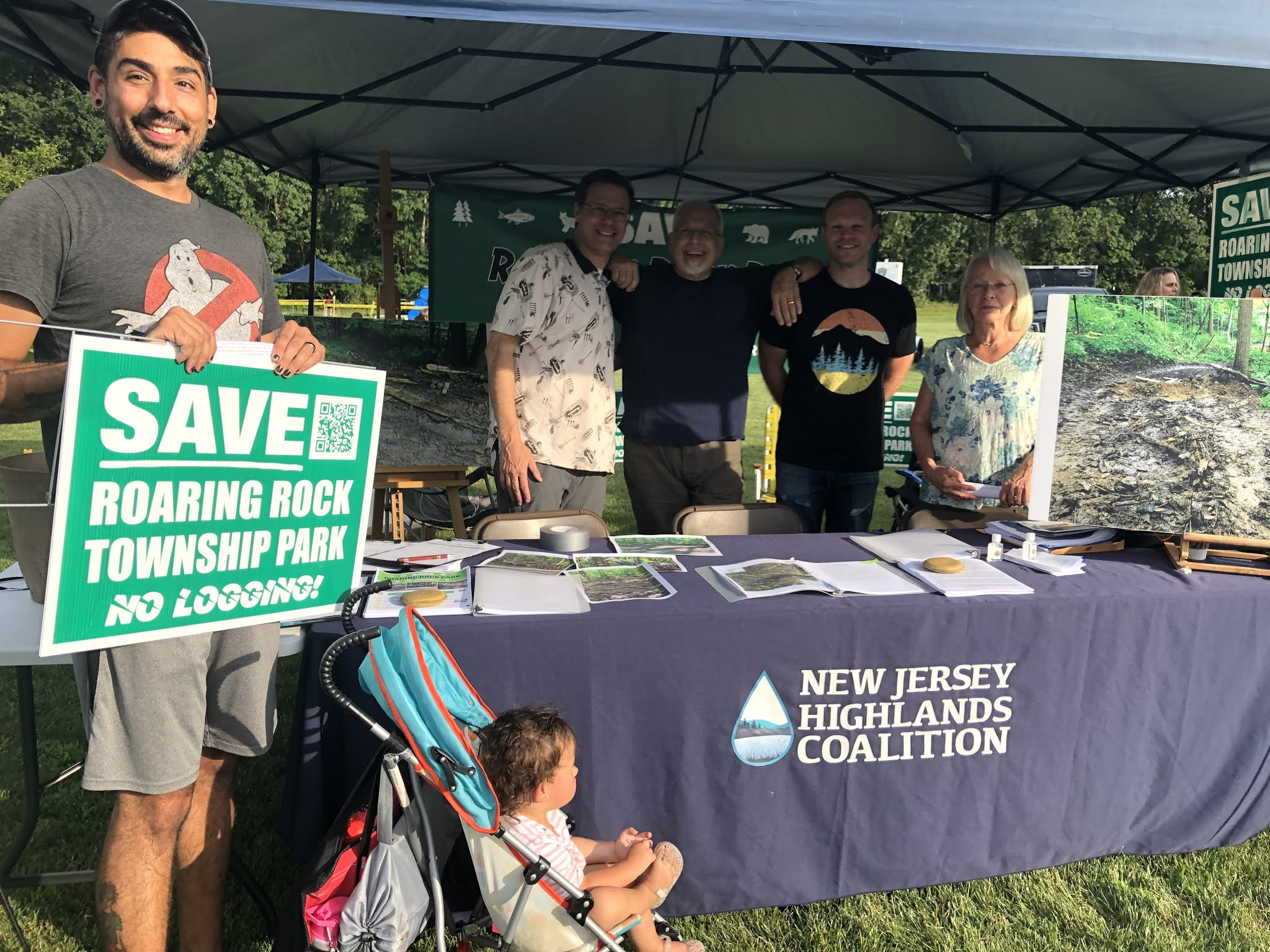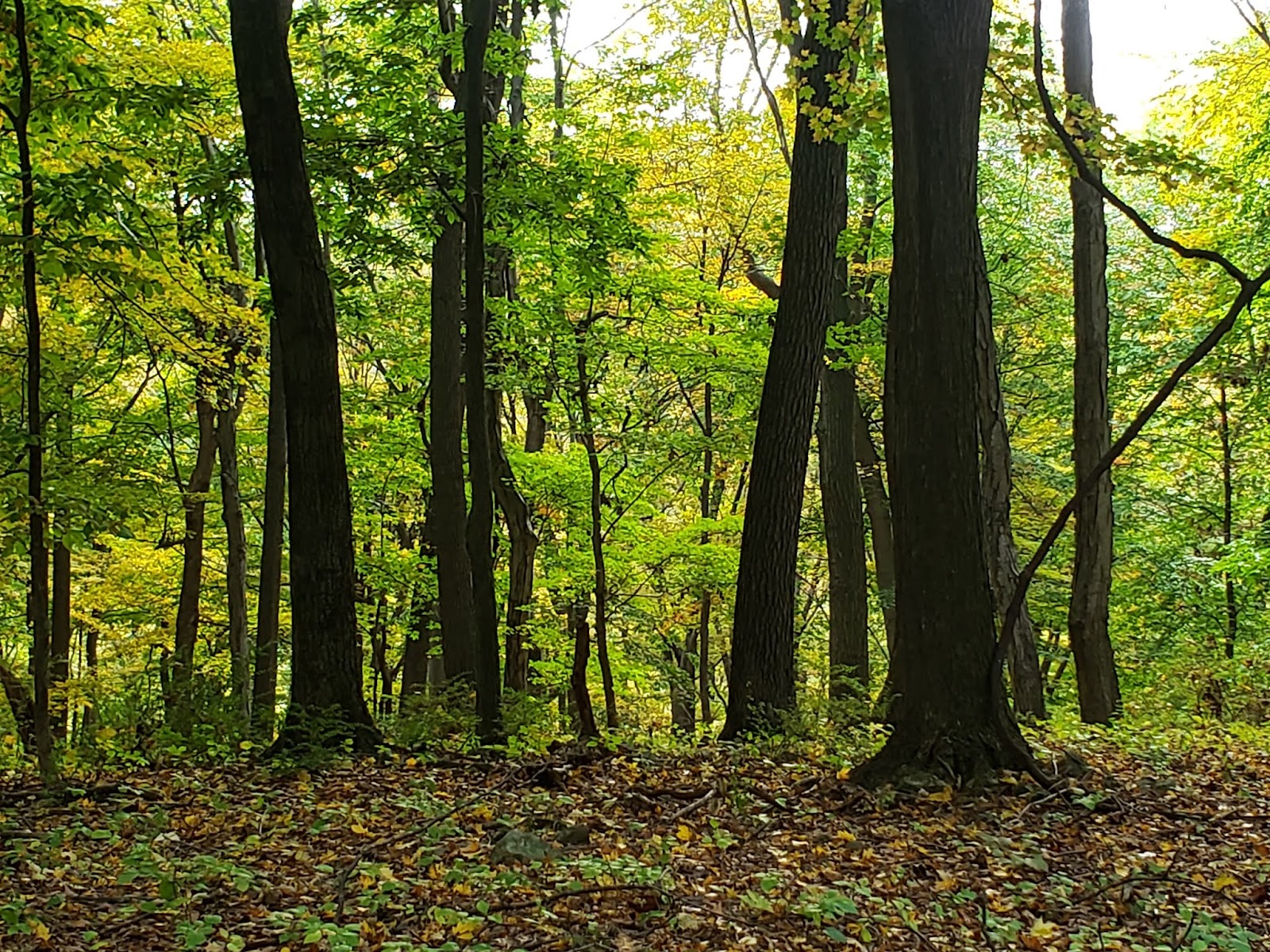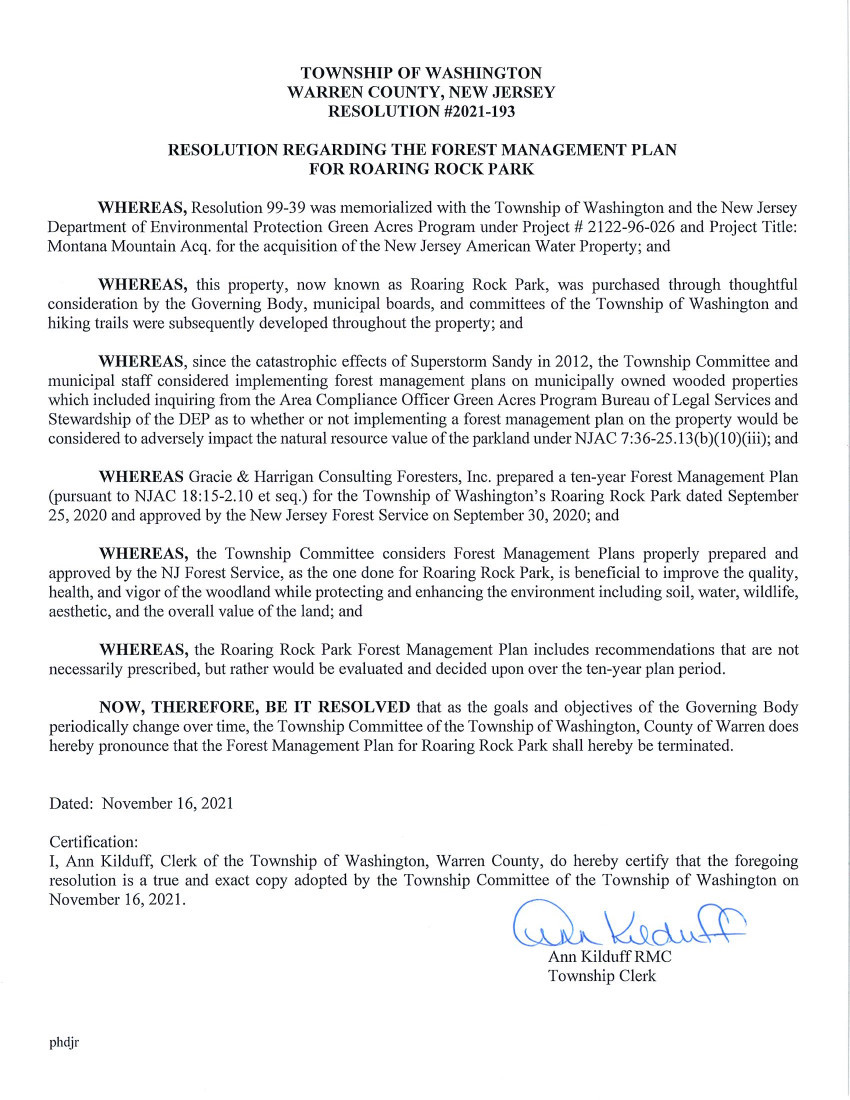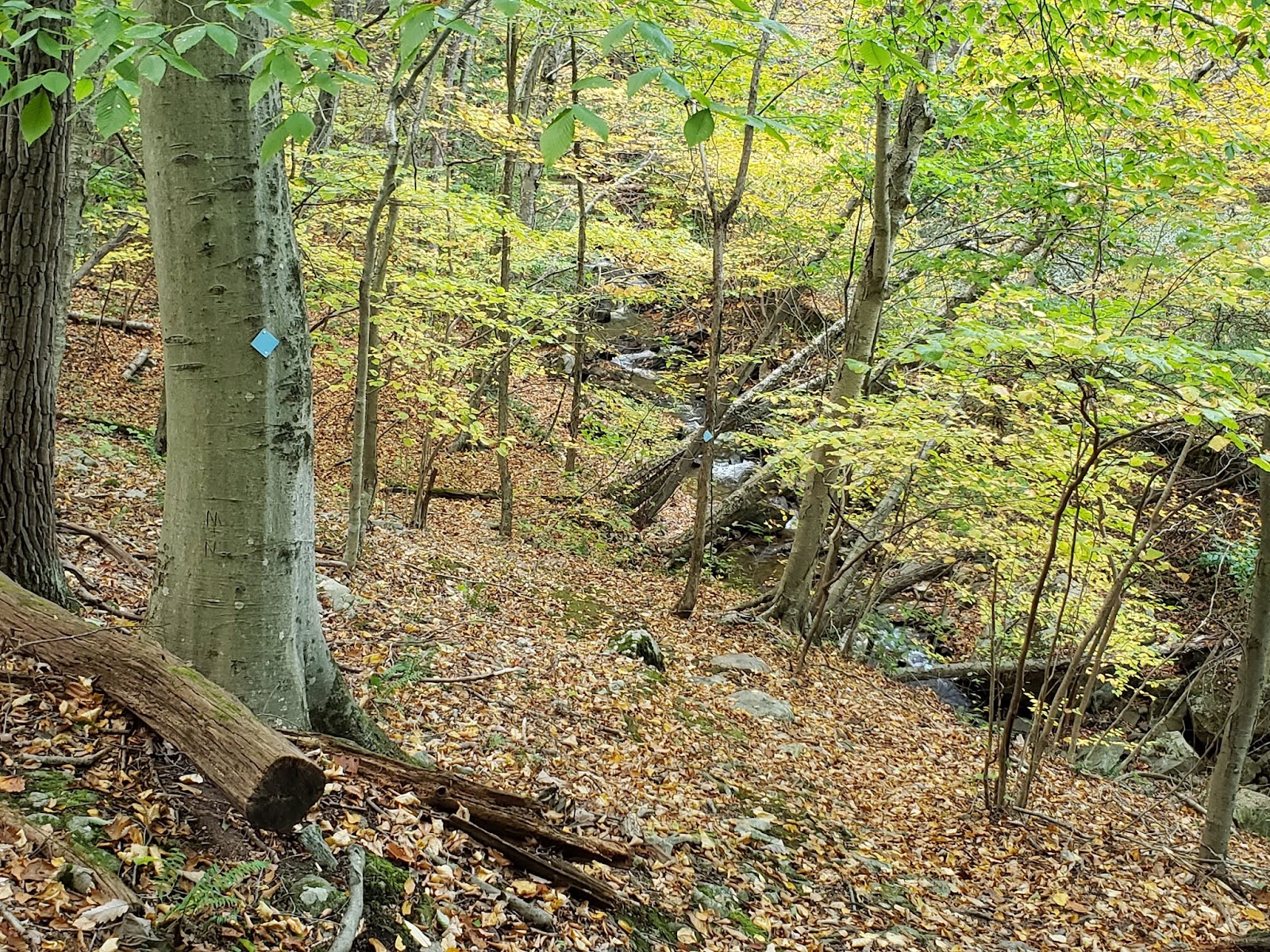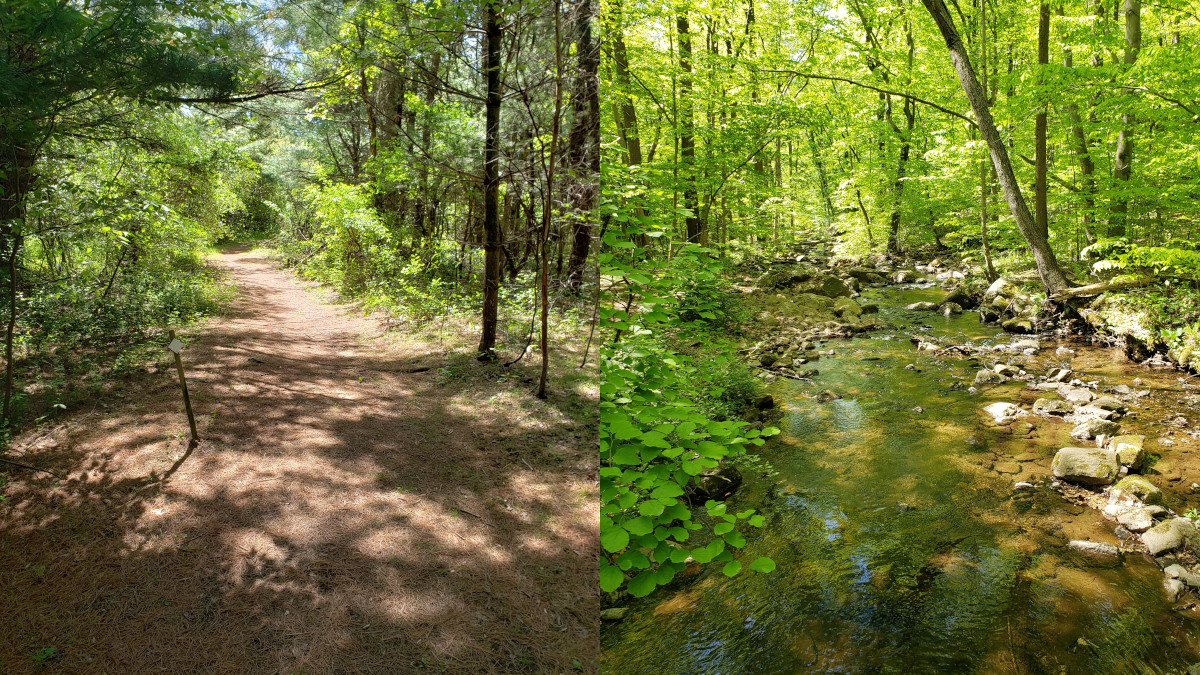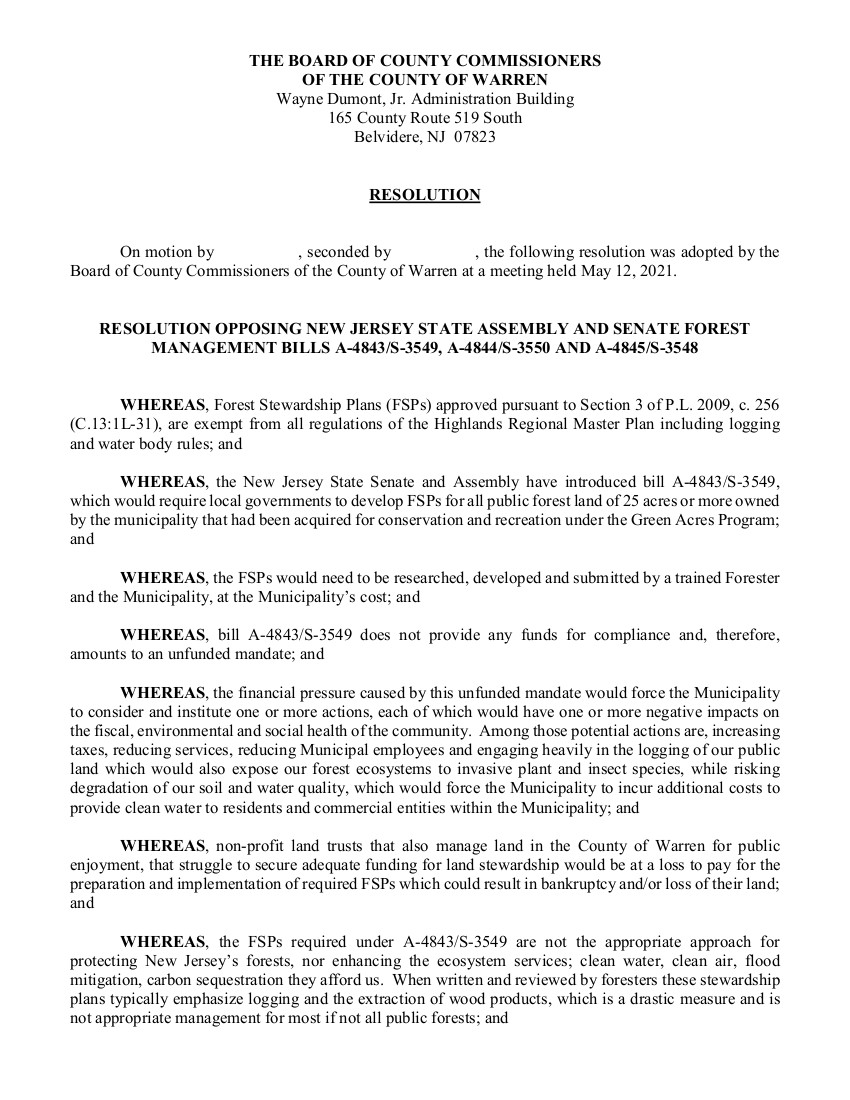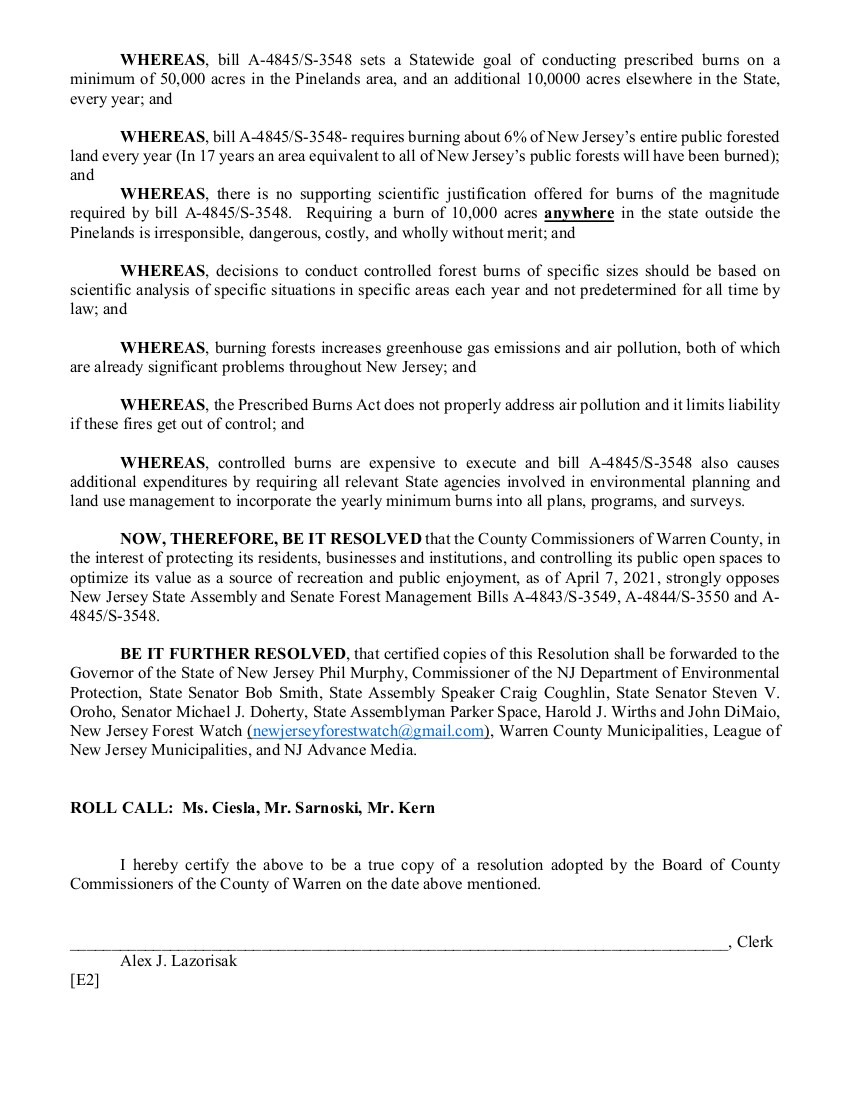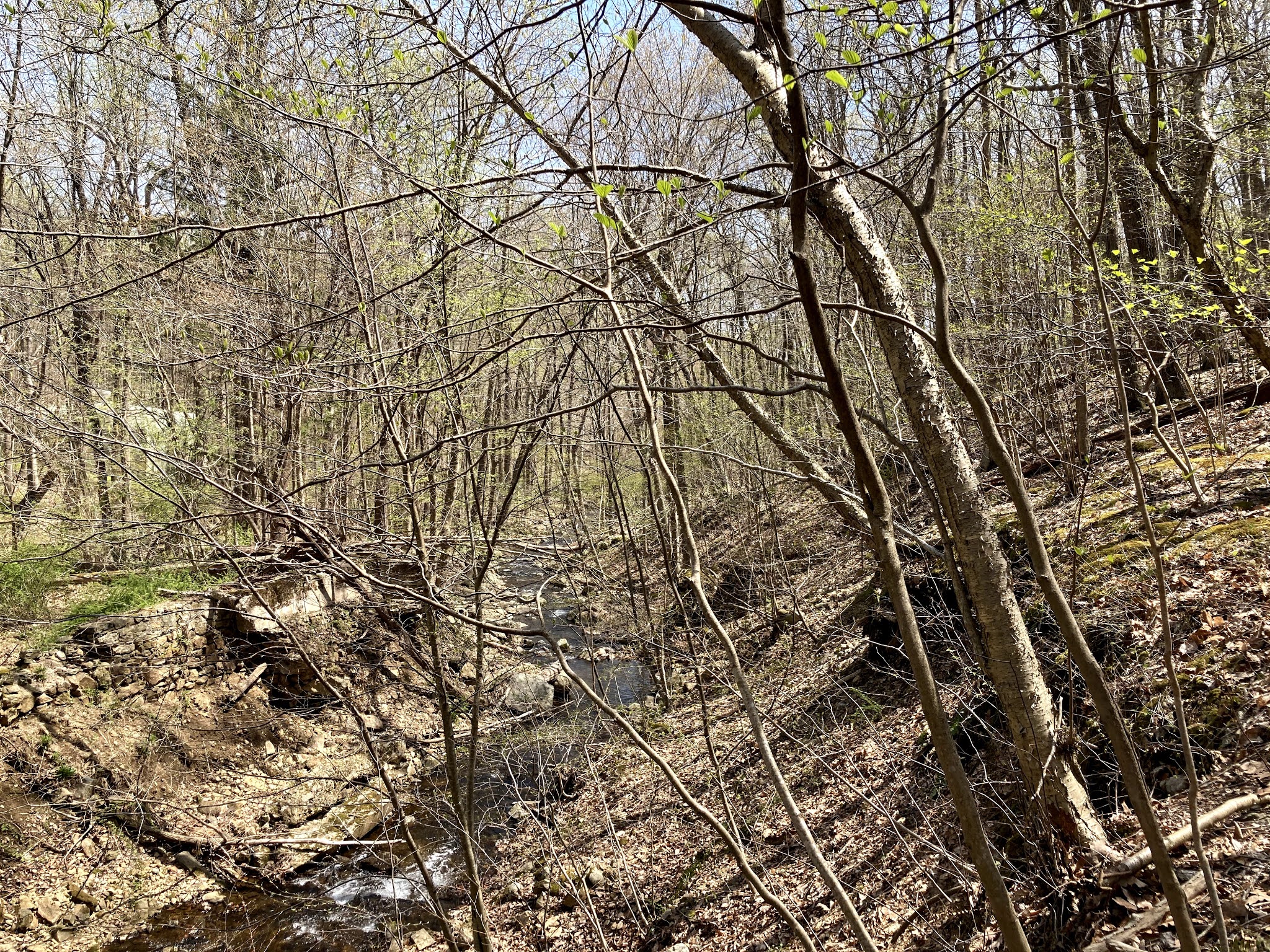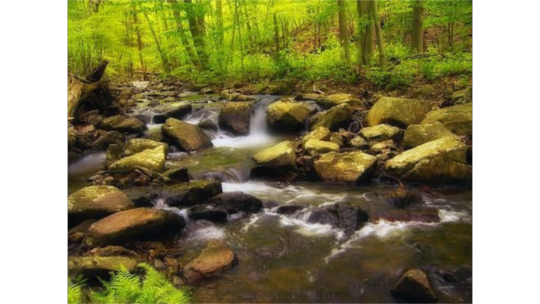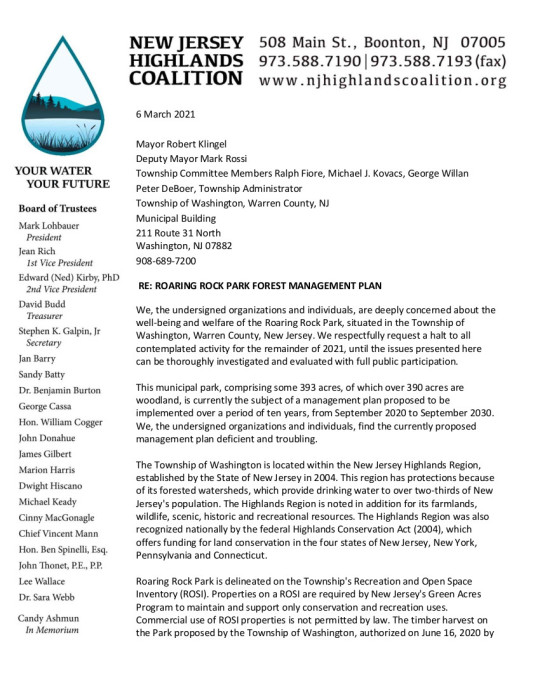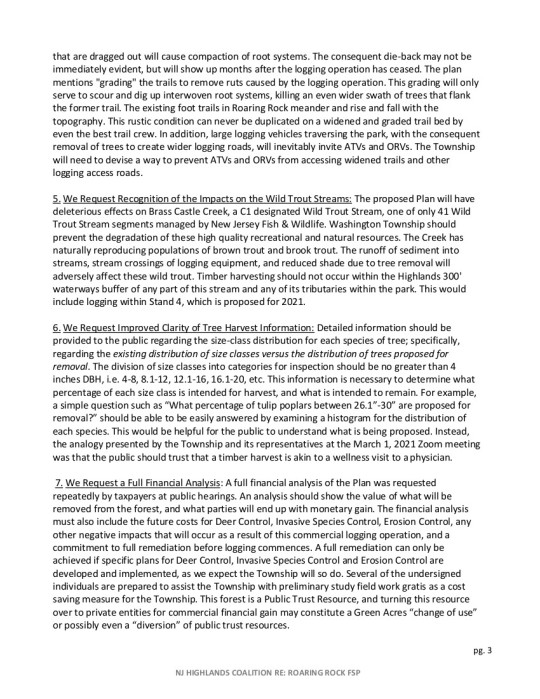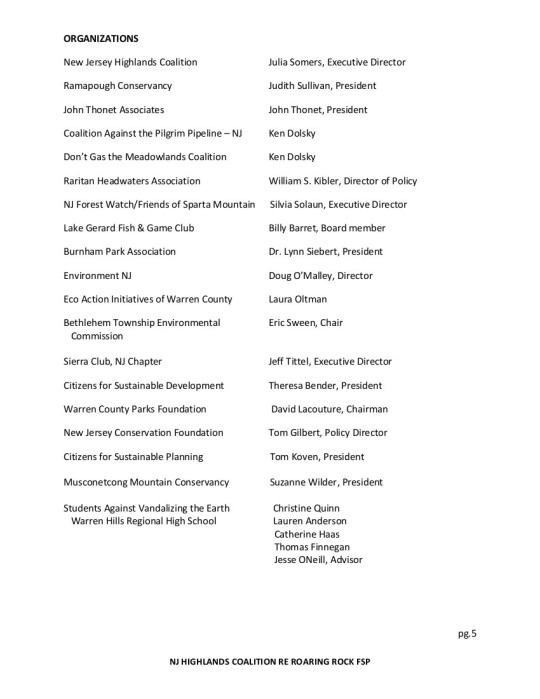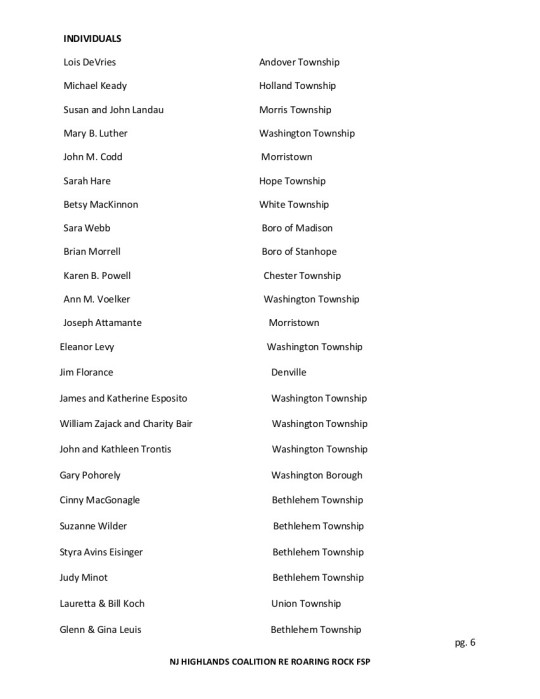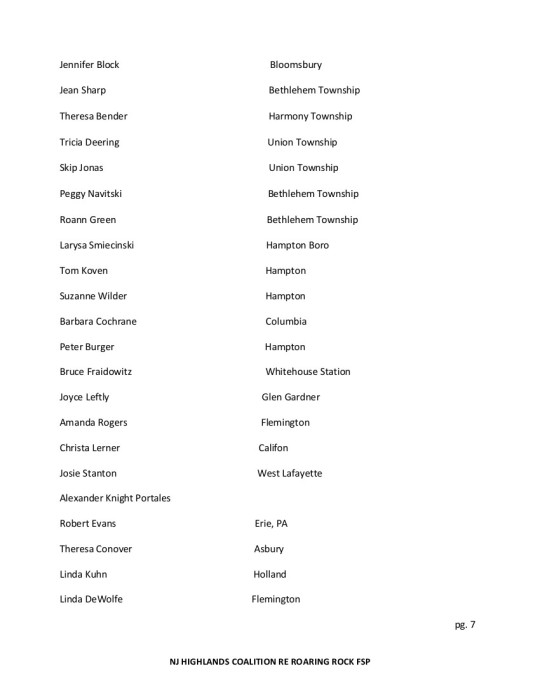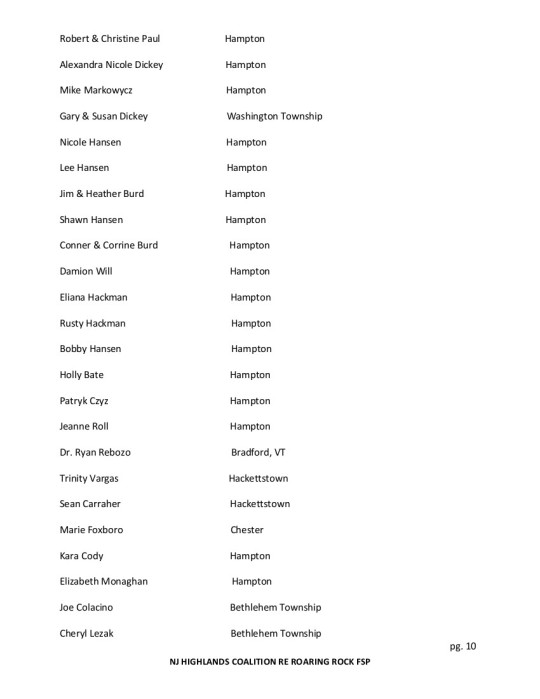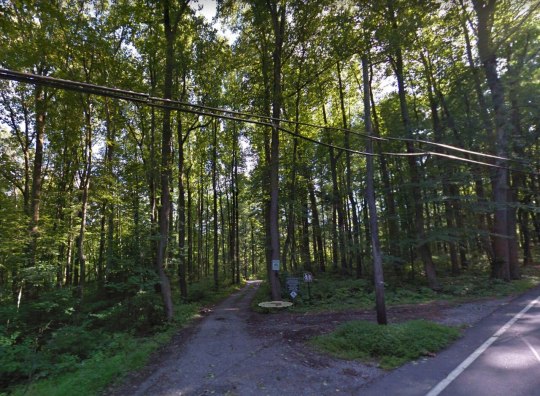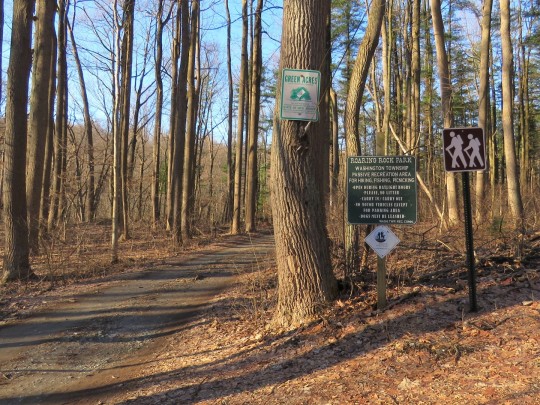
|
|
Credit: Yale University |
New Jersey’s recent investment in urban forestry and management of established public forests at cross purposes, says advocacy group
(Boonton, NJ) The New Jersey Highlands Coalition releases the following
statement today in response to New Jersey Department of Environmental
Protection Commissioner Shawn LaTourette’s announcement of the Murphy
Administration’s awarding of $24.3 million in Natural Climate Solutions
Grants.
Urban tree planting has many benefits, from flood mitigation to
air filtration, cooling cityscapes in the summer, reversing blight, providing
carbon capture to mitigate against greenhouse gas emissions, and improving the
overall quality of life in New Jersey’s cities. We applaud Governor Murphy in
making this significant and wise investment in projects to establish urban
canopies in Atlantic City, Berkeley Heights, Camden, Kearny, Linden, Newark,
Brick, Stafford, Princeton, Trenton and Readington, and awarding grants to
implement many of these projects to organizations with histories of excellence
in greening urban New Jersey, such as New Jersey Conservation Foundation,
American Littoral Society, the Nature Conservancy and Partnership for the
Delaware River Estuary.
But we must caution the Governor that, no
matter how many trees are newly planted, or how many acres of tidal salt
marshes are restored, if at the same time his Division of Fish & Wildlife
continues to cut down mature forest stands in established forests, or the
Green Acres Program approves Forest Stewardship Plans that clear cut acres of
public forests, the Governor’s climate mitigation strategies will result in a
zero-sum gain, or worse.
Today, on a regular schedule, acres of
mature forests are clear-cut in New Jersey’s publicly owned forests justified
and funded by the Young Forest Initiative, to access New Jersey’s remaining
mature and valuable timber in the name of spurious ecological goals of habitat
restoration and enhancement. And if certain interests succeed, bills currently
introduced in the Legislature, if passed, would require that all public
forests of 25 acres or more, purchased in whole or in part with Green Acres
funds, whether state, county, municipal or non-profit-owned, would be required
to implement Forest Stewardship Plans where logging is encouraged.
In early 2021 we discovered that a town in Warren County had
contracted with a State-approved forester to implement a 10-year timber
harvest plan of the type allowed under the pending bill. It was approved by
the NJDEP and the State’s Green Acres program and was for the expressed
purpose of raising revenue for the municipality by harvesting timber. If this
type of harvest was to occur on all public forests of 25 acres or greater the
impacts would be devastating, and the Governor’s initiative to plant urban
trees as a measure to mitigate for carbon emissions would not only would be
meaningless, but silly.
A recent study by the US Department of
Energy has shown that it would take 151 newly planted oak trees 16 years to
equal the yearly carbon capture of one 40 foot oak tree, yet today we are
cutting down 80-175 year old trees on public lands.
“There is a
tremendous disconnect between what the Governor wants to achieve by
positioning New Jersey’s public forests to mitigate for our carbon emissions
and the State’s approval criteria for managing public forests. We continue to
cut down our best defense against climate change,” said Elliott Ruga, Director
of Policy and Communications at the New Jersey Highlands Coalition. “No amount
of urban tree planting can make up for the loss of carbon capture from our
mature forests when they are cut.”
Highlands Coalition board
member, Dr. Sara Webb, Director of the Drew Forest Preserve and Professor
emerita of Biology and Environment at Drew University said, “Our most mature
forests in the Highlands provide society so much in the way of a clean water
supply, habitats for the greatest diversity of species, accessible public
recreation, carbon sequestration and more. Cutting down our oldest and tallest
trees is so destructive to all of these resource values. It defies common
sense that we continue to manage our high conservation forests in such a
manner.”
“If we want to get serious about climate adaptation in
New Jersey we must allow our most mature forests to transition to old growth”,
said Julia Somers, Executive Director of the New Jersey Highlands Coalition.
“The harvesting of timber requires bringing heavy equipment into the forest,
turning rudimentary foot paths into logging roads, which exposes forest soils
to invasions by non-native species and creates habitats that nurture an
already over-abundant deer population. Extracting timber prevents soil
replenishment and the loss of favored habitat for many healthy forest
indicator species such as fungi, insects, amphibians, birds and mammals.”
The New Jersey Highlands Coalition, which advocates for the
protection of the region’s natural and cultural resources recognizes that the
forests of the Highlands hold the greatest concentration of natural resource
values, which is why the Coalition is leading the effort to protect public
forests in New Jersey.




